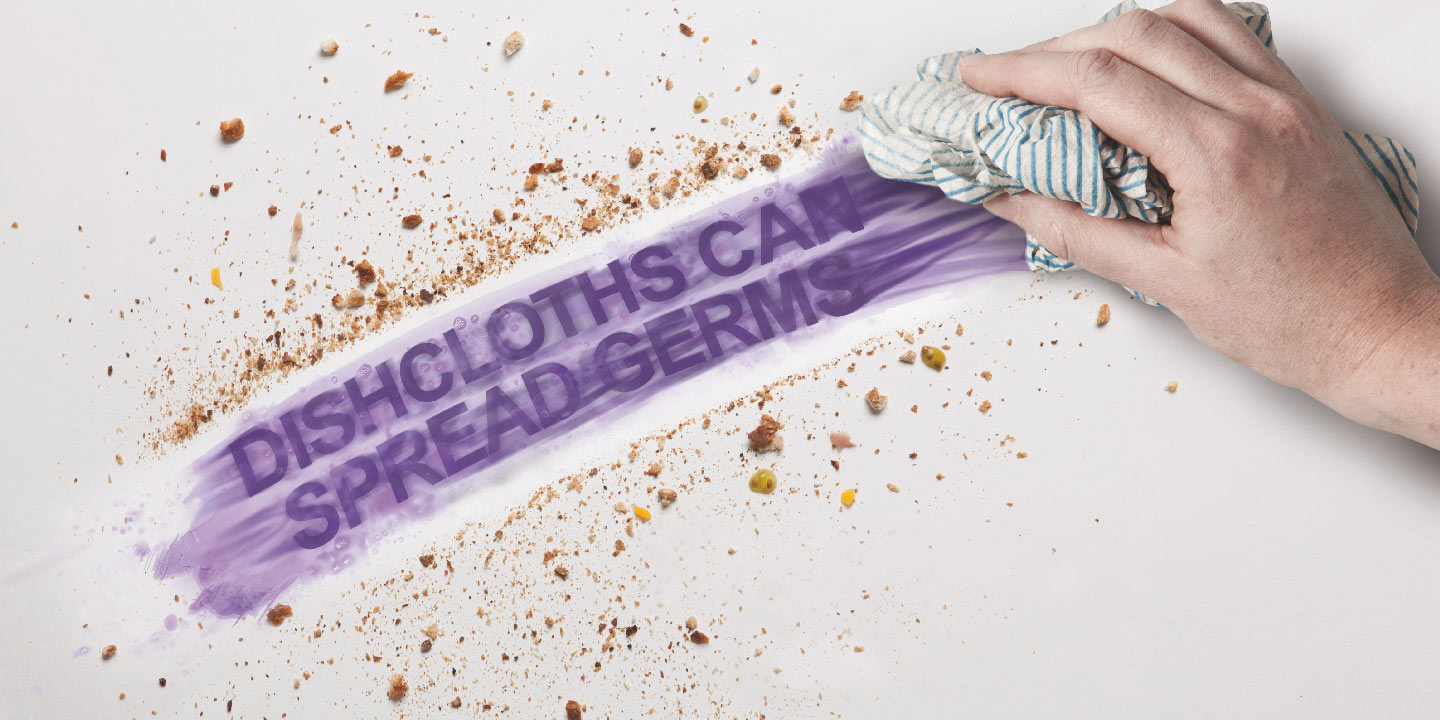Preventing cross contamination

Cross contamination is when harmful bacteria are accidentally transferred from raw food to ready-to-eat food.
Most cases of food poisoning are caused by bacteria from raw food coming into contact with food that is ready to eat. Follow these five rules to prevent it happening in your kitchen.
1. Wash your hands well after handling raw meat or poultry
Research by safefood has shown some startling evidence with regard to handwashing:
- 80% of people didn't wash their hands thoroughly after handling raw mince
- 84% didn't thoroughly wash their hands after handling raw chicken while preparing a warm chicken salad
- 26% of people had raw meat bacteria on their hands after preparing meat
Just think about where your hands have been and where and what they will touch.
2. Handle raw meat packaging just as carefully as the meat itself
Harmful bacteria such as E.coli can survive on your food packaging for up to 24 hours. These bacteria can be transferred quite easily to other kitchen surfaces and also to hands and other kitchen surfaces such as worktops and press handles. Research by the Food Safety Authority of Ireland found that 13% of chicken packaging was contaminated with Campylobacter.
- When you do your shopping, pack your raw meat and poultry separately from your ready-to-eat foods. If you use reusable bags, keep one bag for raw meats only.
- Store raw meat and raw poultry on the bottom shelf of your fridge below ready to eat foods.
- Remove raw meat and poultry from their packaging and directly place on to a cutting board or baking tray. Wash the containers before recycling them, by rinsing them in warm soapy water. To avoid spreading bacteria around the sink, take care not to splash any water onto the surrounding areas. To prevent contaminating any work surfaces, it is always a good idea to sanitise the area around the sink after you wash these containers.
- After you have finished preparing raw meat or raw poultry, wash down all surfaces with hot soapy water.
3. Don't assume that your work surfaces are bacteria free, just because they look clean
Bacteria like Campylobacter can survive on kitchen surfaces for up to 1 hour and E.coli can last for up to 24 hours. safefood research found that:
- 96% of kitchen surfaces were not thoroughly washed after food preparation.
- 43% were contaminated with raw meat bacteria after food preparation.
- A further 67% of people didn't wash the chopping board after using it to prepare raw chicken.
- Of the chopping boards tested, 50% were contaminated with raw meat bacteria after preparation.
It's always good practice to wash worktops and cutting boards with hot soapy water after preparing foods, especially after preparing raw meat, raw poultry, raw seafood or raw vegetables. Always clean as you go between preparing these foods and especially when handling raw foods and then handling ready-to-eat foods.
4. Wash your kitchen utensils after each use
The study done by safefood found that:
- 72% of people failed to thoroughly wash a knife that was used in preparing raw chicken before reusing it to cut salad vegetables.
- 67% of people failed to thoroughly wash a knife that had been used to prepare raw beef before cutting salad vegetables.
- Of the knives that were tested, 18% were contaminated with Campylobacter and 5% were contaminated with E.coli.
- 37% of the salads tested were contaminated with raw meat bacteria.
Scrub all kitchen utensils thoroughly in plenty of clean hot soapy water or in a dishwasher, particularly after using them to prepare raw meat or poultry.
5. Don't use dishcloths for more than two days in a row
Rinsing dishcloths under the tap does not remove germs. Dishcloths that are used for more than two days tend to have high levels of bacteria.
Food poisoning bacteria can survive and grow on dishcloths, particularly when the cloth is damp. Dishcloths are usually stored crumpled up, so they stay wet and often contain larger numbers of bacteria. Of the dishcloths tested in the safefood survey, E.coli was present on 27.5% and Listeria was present on 13.5% of them.
- Change your dishcloth at least every other day.
- If you use your dishcloth to wipe off 'high risk' food debris such as raw eggs, raw meat, raw poultry, raw fish or raw vegetables, change the cloth straight away.
- Boiling your dishcloth for 15 minutes or washing it on a standard cycle in the washing machine are effective ways to kill any bacteria that might be present.
- Don't use a dishcloth that smells.
- If it looks dirty, it is very likely that a high number of bacteria are present.



